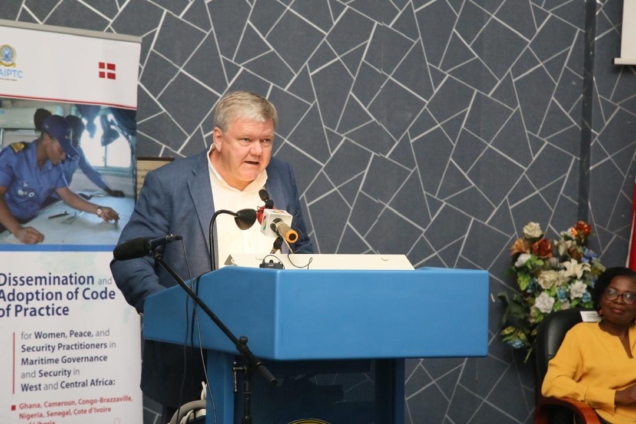The Danish Ambassador to Ghana, Tom Nørring is advocating that women's perspectives be included in maritime security policies.
According to him, women's participation is essential, not only as a matter of equality but also because it has a direct impact on the effectiveness and success of maritime security operations.
Mr Nørring made the call at the launch of a new Code of Practice for Women in the Maritime Security Domain aimed at promoting gender equality and women's participation in the maritime sector.
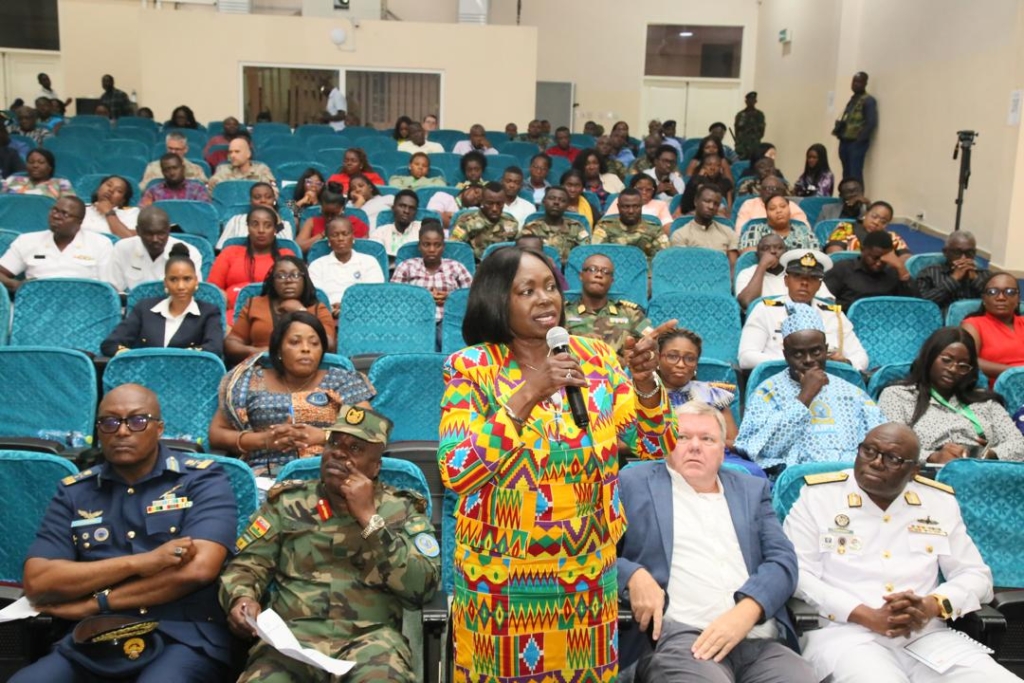
This comes after research by the Kofi Annan International Peacekeeping Training Centre (KAIPTC) under the ongoing Danish Maritime Security Programme revealed key insights into the impact of maritime crimes on women's livelihoods.
The findings not only highlighted the diverse roles women play in the maritime domain but also listed the limited participation, equal opportunities, and discriminatory roles that have been largely overlooked, an oversight that has led to missed opportunities thereby reinforcing harmful gender stereotypes.
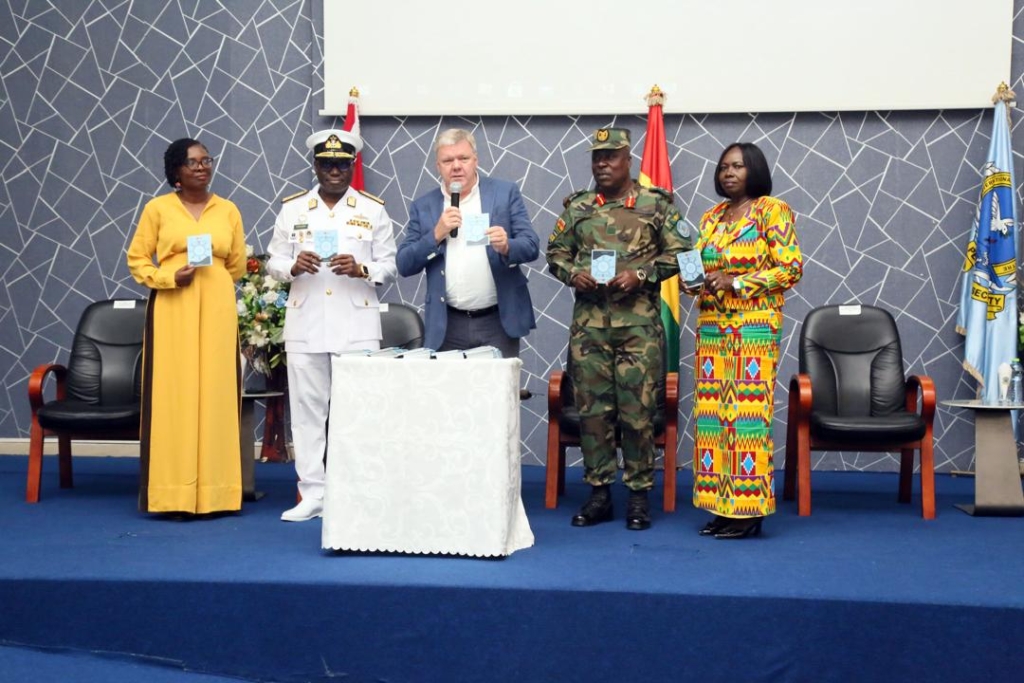
The Code developed by the KAIPTC with the support of the Danish Government, provides a framework for addressing policy gaps and advancing gender equality in the maritime sector.
On the back of this, the Ambassador said that the United Nations Resolution 1325 acknowledged the unequal impact of conflict on women and introduced four key pillars including prevention, protection, participation, and relief and recovery, to safeguard their rights and participation in peace-building.
Two decades later, he said stakeholders have come to recognise the need to apply these same principles to sectors often ignored in gender discussions, including maritime security.
“Despite progress, bridging the gap between policy and implementation remains a challenge, particularly in regions like the Gulf of Guinea where maritime insecurity threatens both livelihoods and regional stability in advancing the principles of the Security Council Resolution as a strong advocate for a rules-based global order, human rights, and international humanitarian law,” Mr Nørring said.
Touching on the code, Mr Nørring explained that it will also foster an environment that ensures the protection of women in the maritime sector while promoting their meaningful participation in security and governance.
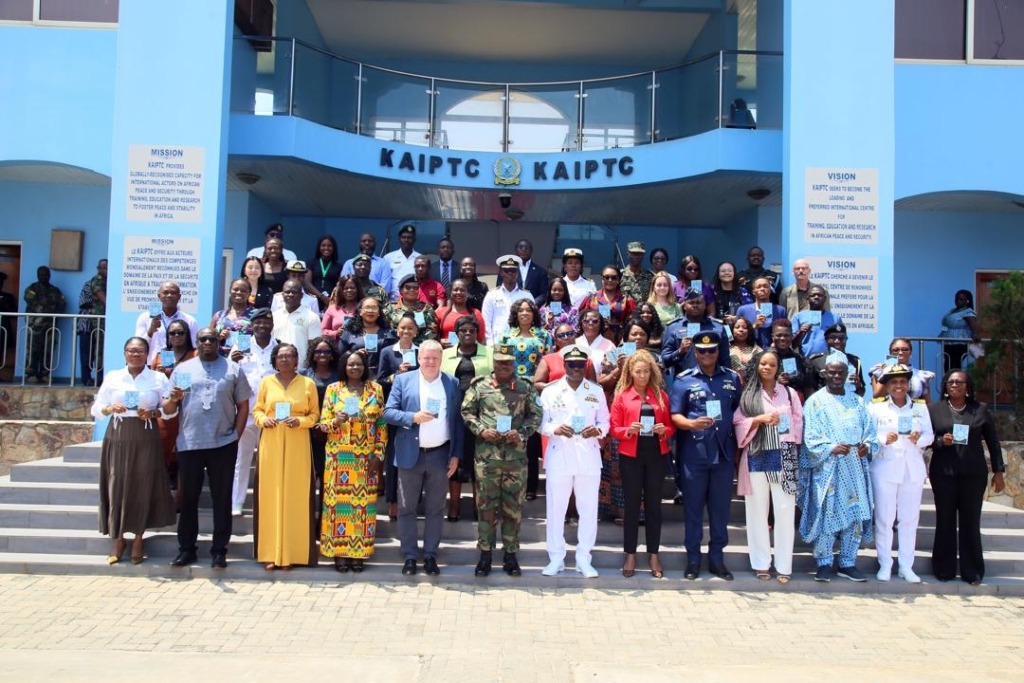
Additionally, he believes the Code would significantly provide a framework to address policy gaps and advance gender equality, peace, and security within the maritime sector.
“Central to the development of this guiding document, which involved both regional and national maritime security actors, is the recognition that maritime security is not solely a men’s issue, it is a human issue, therefore, women’s participation is essential, not only as a matter of equality but also because it has a direct impact on the effectiveness and success of maritime security operations,” he said.
While encouraging players within Ghana’s maritime security domain to adopt and implement the Code of Practice to support women's participation in the maritime sector, Mr Nørring said Denmark remains committed to integrating women's perspectives into maritime security policies and ensuring gender-responsive policies become standard across the Gulf of Guinea.
On his part, the Transport Minister, Kwaku Ofori Asiamah in a speech read on his behalf by the Director of Policy Planning, Irene Messiba, said that the Code would offer its sector agencies the opportunity to ensure a diverse and inclusive workforce that would strengthen the effectiveness of maritime governance and security efforts.
“The Code is not just a document; it is a commitment that provides a clear roadmap for promoting gender equality within our maritime sector by addressing the specific challenges faced by women in maritime security roles, from the Ghana Navy to our civilian maritime agencies and beyond”, Mr Asiamah said.
The Minister for Fisheries and Aquaculture Development, Mavis Hawa Koomson also in her remarks stressed that the launch of the Code underscores the importance of inclusivity in maritime security.
“I see this as a bold statement of our collective commitment to gender equality considering the under-representation we see in the maritime and fisheries governance processes, and this needs to change,” Ms Koomson said
The Ministry she said will continue to support initiatives that enhance women’s participation, particularly through training, capacity building, and leadership development.
The Chief of the Navy Staff, Rear Admiral Issah Adam Yakubu in his remarks highlighted the low representation of women in the sector and the need to break down barriers that have traditionally excluded them.
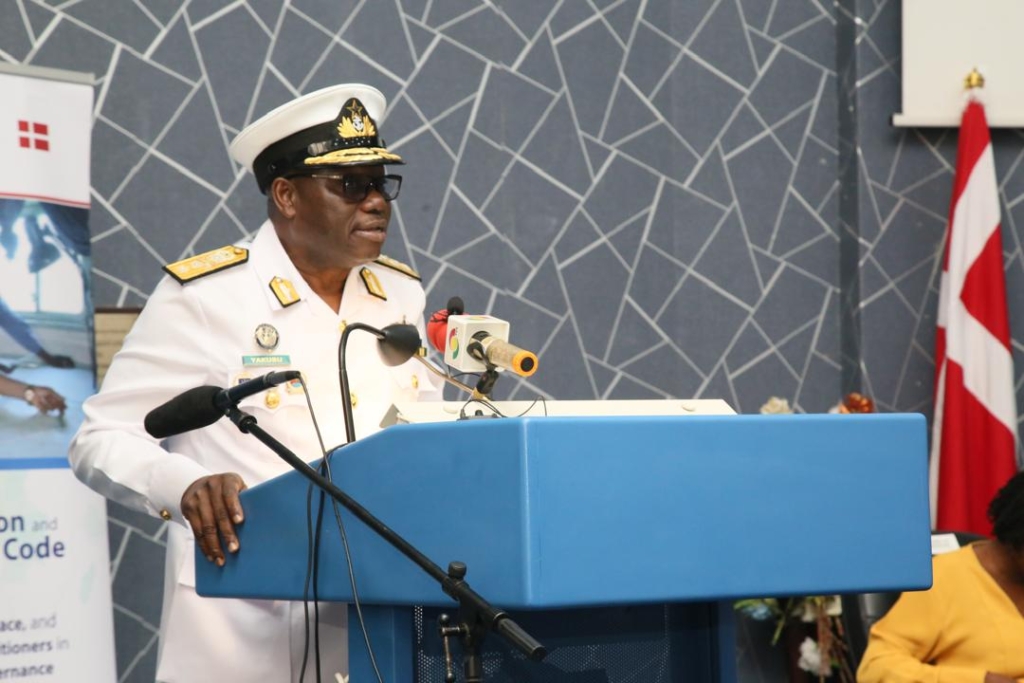
"Women face numerous challenges in terms of roles, representation, and participation in decision-making within the maritime sector and I see this Code of Practice outlining a set of principles and guidelines that will govern the recruitment, training, promotion, and working conditions, aiming to ensure that women are treated fairly and have equal opportunities.
“At the Ghana Navy, we anticipate that this Code of Practice would be implemented effectively to encourage more women to pursue careers in maritime security which will not only lead to a more diverse and effective workforce but also contribute to the overall security and prosperity of the nation”, Rear Admiral Yakubu said.
The Commandant of the KAIPTC, Major General Richard Addo Gyane in his welcome address highlighted the multifaceted challenges of the Gulf of Guinea's maritime domain, noting that the Code will make a difference in the experiences of women practitioners across the sector.
Latest Stories
-
Chief of Staff rolls out ‘Walk with Julius’ initiative to encourage healthy living, calls on corporate Ghana to join JoySports Invitational Tournament
1 hour -
NSMQ 2025: St Peter’s SHS claims 4th Eastern Regional title after intense showdown with Okuapeman and Pope John’s
2 hours -
Tera Hodges confirmed as speaker for Africa’s Women’s Day Virtual Celebration 2025
2 hours -
Gospel artiste Terry Johnson releases soulful new single “Ohe yɛ naakpɛɛ”
2 hours -
Nearly 200 Ghanaian students stranded as gov’t owes University of Memphis $3.6m
3 hours -
At least 14 dead in South Korea floods and landslides
4 hours -
You’ve kept to the objective – Chief of Staff Julius Debrah hails MGL
4 hours -
Cape Coast hosts final leg of National Talent Identification Program for Para athletes
5 hours -
ESG and Boardroom Decisions: How Non-Financial Drivers Shape Financial Outcomes
6 hours -
Robust anti-laundering fight critical for regional stability – Veep
10 hours -
Car ploughs into crowd outside LA nightclub, injuring 30
11 hours -
GNAT President calls for parliamentary legislation to protect reinstated PTAs
13 hours -
NPP Abanga blames his NDC twin brother for his misfortune
14 hours -
NPP Abanga breaks ranks to shield NDC twin brother in ‘galamsey’ accusations
14 hours -
Saminu Abdul Rasheed smashes national record again with 9.84s sprint in Georgia
15 hours

